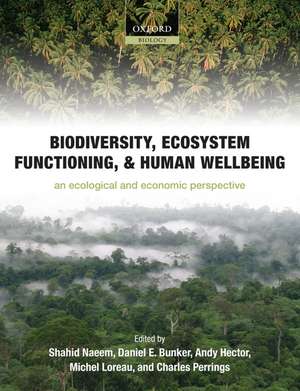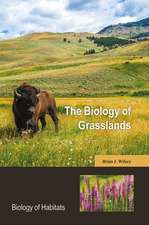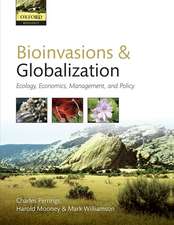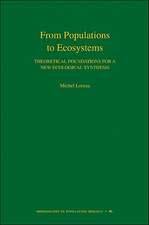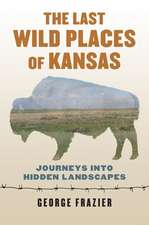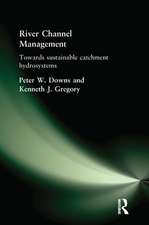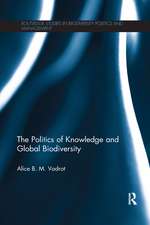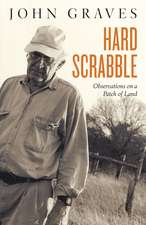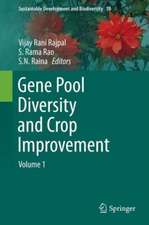Biodiversity, Ecosystem Functioning, and Human Wellbeing: An Ecological and Economic Perspective
Editat de Shahid Naeem, Daniel E. Bunker, Andy Hector, Michel Loreau, Charles Perringsen Limba Engleză Paperback – 30 iul 2009
| Toate formatele și edițiile | Preț | Express |
|---|---|---|
| Paperback (1) | 341.22 lei 31-37 zile | |
| OUP OXFORD – 30 iul 2009 | 341.22 lei 31-37 zile | |
| Hardback (1) | 841.22 lei 31-37 zile | |
| OUP OXFORD – 29 iul 2009 | 841.22 lei 31-37 zile |
Preț: 341.22 lei
Preț vechi: 413.70 lei
-18% Nou
Puncte Express: 512
Preț estimativ în valută:
65.31€ • 70.97$ • 54.90£
65.31€ • 70.97$ • 54.90£
Carte tipărită la comandă
Livrare economică 10-16 aprilie
Preluare comenzi: 021 569.72.76
Specificații
ISBN-13: 9780199547968
ISBN-10: 0199547963
Pagini: 384
Ilustrații: 65 black and white illustrations and a 4 page colour plate section
Dimensiuni: 189 x 246 x 20 mm
Greutate: 0.86 kg
Ediția:New.
Editura: OUP OXFORD
Colecția OUP Oxford
Locul publicării:Oxford, United Kingdom
ISBN-10: 0199547963
Pagini: 384
Ilustrații: 65 black and white illustrations and a 4 page colour plate section
Dimensiuni: 189 x 246 x 20 mm
Greutate: 0.86 kg
Ediția:New.
Editura: OUP OXFORD
Colecția OUP Oxford
Locul publicării:Oxford, United Kingdom
Recenzii
A very useful volume to anyone interested in ecosystem functionality.
Notă biografică
Shahid Naeem is Professor of Ecology and Chair, Department of Ecology, Evolution, and Environmental Biology, Columbia University. Dr. Naeem pioneered experimental tests of the effects of biodiversity on ecosystem function (Naeem et al. 1994) and has been a leader in the field. He co-chaired the Millennium Ecosystem Assessment Biodiversity Synthesis Report (Duraiappah and Naeem 2005), co-edited Biodiversity and Ecosystem Functioning: Synthesis and Perspectives (Loreau et al. 2002) and has published more that 50 peer-reviewed research papers.Daniel Bunker is an Assistant Professor at the New Jersey Institute of Technology (Newark, New Jersey, USA). Dr. Bunker in co-director of the BioMERGE project and the TraitNet project. Dr. Bunker focuses on understanding the effects of global climate change on species diversity and composition, and the concomitant effects on ecosystem functioning and services. Additional research foci include functional diversity, trait based ecology, and ecoinformatics. Andy Hector is a community ecologist interested in the links between biodiversity and ecosystem functioning. Andy gained a BSc. (Honours) in Natural Environmental Science from the University of Sheffield in 1991 and received his PhD from Imperial College London in 1996. He did his first post-doc as scientific coordinator of the BIODEPTH project and later held research fellowships at the Centre for Population Biology funded by NERC and the Royal Society. In 2003 he was appointed Assistant Professor within the Institute of Environmental Sciences at the University of Zurich where he is currently undergoing tenure review for a full Professorship.Michel Loreau is Full Professor and Tier 1 Canada Research Chair in theoretical ecology at McGill University (Montreal, Canada). He has won several scientific prizes, including the International Ecology Institute Prize, the Silver Medal of the National Centre for Scientific Research (France), and the Agathon De Potter and Max Poll Prizes of the Royal Academy of Belgium. He has been member of numerous national and international scientific committees. In particular, he chaired the Scientific Committee of DIVERSITAS, the international programme of biodiversity science, the International Steering Committee of the consultative process towards an International Mechanism of Scientific Expertise on Biodiversity (IMoSEB), and the Steering Committee of the European Science Foundation programme LINKECOL. He is the author of over 200 scientific publications in the fields of theoretical ecology, community ecology, ecosystem ecology, population ecology, and evolutionary ecology.Charles Perrings is Professor of Environmental Economics, School of Life Sciences, Arizona State University. He has served as President of the International Society for Ecological Economics and as Vice Chair of the Scientific Committee of Diversitas. He is the 2008 winner of the Kenneth E. Boulding Prize for ecological economics. He has authored or edited 11 books and monographs on the economics of the environment, labor and education, and has published over 100 scientific papers on environmental, resource and ecological economics; the resilience and stability of dynamical ecological-economic systems; and the economics of biodiversity change. He has been engaged in the various processes to follow-up the Millennium Ecosystem Assessment and the IMOSEB consultation with the establishment an international body on biodiversity change, the Intergovernmental Panel on Biodiversity and Ecosystem Services (IPBES).
